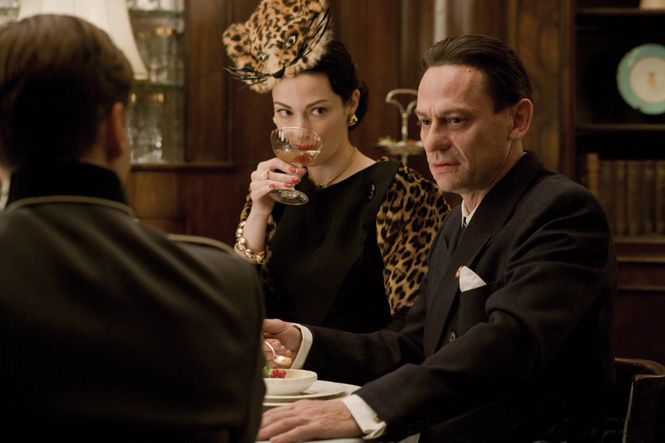Consider this scene from Quentin Tarantino’s WWII epic, Inglourious Basterds. German movie star (and war hero) Fredrick Zoller is trying to persuade Joseph Goebbels to switch the venue for his new movie’s premiere. Zoller’s real motive is to impress his would-be girlfriend, Shosanna, who owns a small theater.
GOEBBELS: How many seats in your auditorium?
SHOSANNA: Three hundred and fifty.
GOEBBELS: That’s almost four hundred less than The Ritz.
FREDRICK: But dear Goebbels, that’s not such a terrible thing. You said yourself you didn’t want to indulge every two-faced French bourgeois taking up space currying favor. With less seats it makes the event more exclusive. You’re not trying to fill the house, they’re fighting for seats. Besides, to hell with the French. This is a German night, a German event, a German celebration. This night is for you, me, the German military, the high command, their family and friends. The only people who should be allowed in the room, are people who will be moved by the exploits on screen.
GOEBBELS: I see your public speaking has improved. It appears I’ve created a monster. A strangely persuasive monster. When the war’s over, politics awaits.
[Table chuckles.]
While this is all fiction, it’s profound fiction. Ponder Goebbels’ last phrase: “Politics awaits.”
Fredrick shows zero understanding of policy. Indeed, it’s hardly clear that he even understands the optimal way to plan a movie premiere. So what has Fredrick displayed? A talent for demagoguery. He scorns foreigners – “every two-faced French bourgeois taking up space currying favor” and “to hell with the French.” He panders to nationalist identity: “This is a German night, a German event, a German celebration.” And Fredrick scorns and panders eloquently enough to bemuse the Minister of Propaganda himself.
When you watch Inglourious Basterds, Goebbels’ reaction to Fredrick’s appeal seems obvious, even banal. Why? Because Goebbels is speaking like a generic politician, not a Nazi. And when he does so, we all nod, because deep down we know the ugly truth that demagoguery rules the world. We’re just afraid to say it.




